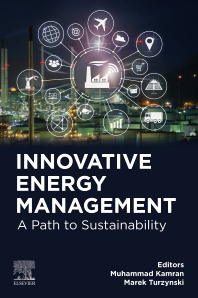Books in Energy policy business and economics
Books in Energy policy business and economics
Designed for policymakers, industry leaders, and researchers, this portfolio examines energy markets, policy frameworks, and economic impacts of energy development. Featuring empirical studies, market analyses, and strategic insights, it supports effective decision-making for sustainable energy transitions and economic growth, addressing issues like energy security, regulation, and investment in clean energy technologies.

Advances in the Electricity Markets
Data-Driven Analytics- 1st Edition
- June 1, 2026
- Sonal Gupta + 4 more
- English

Geopolitical Strategies for Renewable Energy Access, Development, and Growth
- 1st Edition
- March 9, 2026
- Paul C. Okonkwo
- English

Economic Impact of the Energy Transition
Energy-Environment-Economy Models- 1st Edition
- March 1, 2026
- Jinsoo Kim + 2 more
- English

Industrial Decarbonization and the Energy Transition
Innovative Solutions for a Carbon-Free, Sustainable, and Clean Environment- 1st Edition
- November 21, 2025
- Suresh Sundaramurthy + 2 more
- English

Climate Mitigation and Adaptation Strategies for Cultural and Natural Heritage
From Conceptualization to Action- 1st Edition
- November 10, 2025
- Elena Lucchi
- English

Strategies for an Energy Transition
Planning for a Sustainable Future- 1st Edition
- October 28, 2025
- Tania Itzel Serrano-Arévalo + 6 more
- English

Simulation and Machine Learning Models for Energy Policy Design
- 1st Edition
- October 14, 2025
- Festus Adedoyin
- English

Decarbonizing the Petroleum Industry
Current Status, Ongoing Activities, and Future Prospects- 1st Edition
- September 15, 2025
- Achinta Bera + 1 more
- English

Innovative Energy Management
A Path to Sustainability- 1st Edition
- August 29, 2025
- Muhammad Kamran + 1 more
- English

Energy Economics, Finance, and Management in Developing and Emerging Economies
- 1st Edition
- August 24, 2025
- Hooi Hooi Lean + 1 more
- English